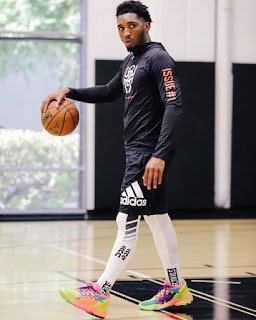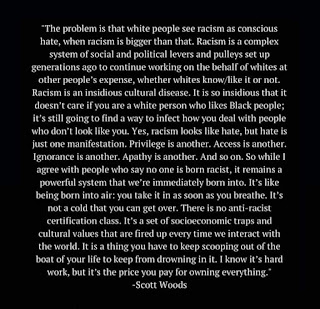When You Watched TV: June 6, 2020 in Salt Lake City
When you watched TV on June 6, 2020, how did you feel being thrust back into the national spotlight after one week during which you'd watched your beloved city burn all around you? In the middle of a Covid-19 pandemic, here you were, watching like we all were, this backlash after the Utah Jazz posted a Black Lives Matter statement, praising the movement. To some, this statement officially supported the riot on May 29, 2020 and its accompanying scars, graffiti and mayhem when BLM protests took place alongside protests for the cause of #Justice4Bernardo--in reference to a 22-year-old Hispanic male reportedly shot more than 20 times by Salt Lake City Police on May 23.
Now you had to ask yourself the same questions we all were asking, such as how did this latest black eye happen? Well, it appears we may have done this to ourselves. Moments after the Utah Jazz released a statement supporting BLM in unequivocal terms, their fan page on Facebook was flooded with statements from several fans saying they would be cancelling their season tickets immediately--along with many comments some would consider racist and demeaning, as several posters called Donovan Mitchell derogatory names and even threatened to burn their Mitchell Issue No. 1 Adidas shoes. For players like Mitchell, the Jazz star who has since recovered from Covid-19 as he prepares for a return to NBA action in Orlando next month, he clearly had enough of this noise. "Said it once and I'll keep saying it!! Y'all can't hide no more," he tweeted. The elephant in the room and the most visible person on the Jazz who had more than likely read and absorbed all the tweets and Facebook and Instagram posts had finally spoken. While he didn't say anything in particular to any one fan, his message was clearly directed at the masses.
When you watched TV, you read a report that Karl Malone, yes, THE Karl Malone Utah Jazz legend was speaking out against BLM protests, stating in part that "black people need to stop looking for a handout." He also said that they need to get jobs and stop being lazy, in as many words. This was in response to an interview with the Huffington Post and in lieu of earlier comments from NBA Hall of Famer and current TNT Television analyst Charles Barkley, who stirred the pot last December in reference to the protests in Ferguson, Missouri. “We, as black people, we got a lot of crooks,” Mr. Barkley said at the time. “We can’t just wait until something like this happens. We got to look ourselves in the mirror.”
The full interview with Malone, which can be seen in its entirety here is nothing new for the Jazz legend or for the legions of Jazz faithful who still follow every move Malone does off the basketball court. Malone is well known for famously refusing to have any physical contact with Magic Johnson in their playing days upon learning the Lakers star had contracted the HIV virus that causes AIDS. (Malone later that season recanted that statement about Johnson and hugged him during a game in which the two teams competed.) Not all in the Jazz or NBA who observed the BLM protests, however, came away with the same feelings as Malone or Barkley. Ed Davis, who is currently on the Jazz roster at center, talked about the BLM protests. "For me, personally, I’m for the Black Lives Matter movement. I’ve always been for it," said Davis, who added that when he was a member of the Portland Trail Blazers, he and other players would try to "bring black kids and the police together" in an attempt to help them gain common ground and respect for one another.
When you watched TV, what did you do when you learned that Morgan Scalley, a defensive coordinator for the Utah Utes college football team, referred to a black person as "a person of color" in a 2013 text message that had been recently leaked? Scalley, who was subsequently suspended by the school after it learned of the text reportedly used the term while he was a defensive position assistant with the Utes. The message was relayed by Scalley in reference to several black players he'd been advising on a team-related matter--players with whom he'd become recently frustrated. The text itself was meant for Utah football staff members--but was accidentally forwarded to a Utah player, who didn't take kindly to it.
Upon learning of this text from 2013 themselves, several Utah football players reacted to it on Twitter in 2020. “Wow Morgan Scalley this hurts that’s what u think and feel after all we been through #BlackLivesMatter,” tweeted Steve Savoy, a former Utah football wide receiver. “Wowwww!!!!!!” tweeted former Ute cornerback Sean Smith, who added, “And what u mean “men of color?” See the truth always comes out… Utah was crazy… And my teammates know wassup. Let’s see if Saftey Pride gone speak up and be honest.” Even former Utah wideout Kenric Young chimed in. “Got love for Utah…but I totally feel you Sean Smith,” replied Young. “This and know exactly what you are talking about, no need to explain to anyone cause people won’t listen or believe us if we told them!!!
When you watched TV, or in this case you were monitoring your social media apps on your cell phones, what did you think of these negative remarks toward Coach Scalley? Reactions were mixed on KSL's Facebook page, however, the overwhelming response was that Scalley shouldn't have said what he said but that people are human and they make mistakes--which was more or less the response from about two-thirds of former Utah football players including former Ute star and current LA Rams player Terrell Burgess. “Morgan Scalley is a great coach but an even better human being,” Burgess tweeted. “This man may be a lot of things like hard-nosed and loud but one thing for sure is he isn’t racist. Obviously whatever was said is unacceptable but this does not portray the great character and warm heart he has.” Another current NFL player and former Ute in Julian Blackmon agreed with Burgess.
Not only did Utah's main rival BYU not jump into the fray and point fingers--they put out a video in which they said, "Don't wish for change. Be the change," supporting BLM. According to an article on KSL Sports, "Cougars featured in the video included Jaren Hall (quarterback), Khyiris Tonga (defensive lineman), Matt Bushman (tight end), Chaz Ah You (linebacker), and Troy Warner (defensive back), Malik Moore (defensive back), D’Angelo Mandell (defensive back), Chris Wilcox (defensive back), George Udo (defensive back), Shamon Willis (defensive back), and Talmage Gunther (wide receiver)." National opinion on the matter, however, was mixed and shortly thereafter, Scalley released a statement which may be read in its entirety here and in which he apologised profusely for his actions back in 2013.
When you watched TV, I think you felt like many when you read the news about the Jazz and Scalley. Firstly, how could so many Utah Jazz fans turn so quickly on their own team? As was evidenced when the Jazz franchise permanently banned a fan for making remarks to NBA star Russell Westbrook at a game at the Vivint SmartHome Arena, emotions ran high then and reactions were also mixed. Perhaps moreso with the pandemic, the lockdown that followed and now with the social unrest following the murders of George Floyd and locally speaking, Bernardo, even more today. One only need look at local Facebook news posts to see that while there is one larger camp that supports BLM, the movement and all that it encompasses, there is another, vastly smaller minority that clearly doesn't and may not ever.
Moreover, why would a former Utah All-American safety and current Utah defensive coordinator--not to mention the most likely candidate to replace Kyle Whittingham as Utes head coach--do and say such things that many would construe hurtful and damaging only seven years prior? Why would so many come to Scalley's defense yet why would there still be a small contingent of former Utah players who couldn't let bygones be? The answer might be as painful as one could imagine. For reference, Iowa strength coach Chris Doyle said something similar and now he's been handed a $1.1 million separation agreement to depart. There isn't any easy way to understand prejudices people may have toward one another, or whether systematic racism, intentional or not, comes from preconceived notions that in all actuality make zero sense to nearly everyone. That the ideas sprung forth from learned behavior and were ingrained from childhood on and from cultural differences might. To offer a perspective, Scalley was raised in the Sugarhouse section of Salt Lake City, a quiet and comfortable tree-lined cul-de-sac while Dominique Hatfield was raised in the mean streets of South Central Los Angeles by a single mother who struggled to make ends meet. The dichotomy is astounding. To end this I'll quote the late, great writer, Mr. Frank DeFord. "I think at its best, sport does bring us together," he said. Living in a two-parent home in cozy Sugarhouse is indeed worlds away from a single-parent, steel-barred dwelling in Watts. But once sports resume and we are shoulder to shoulder will we see beyond these differences? Beyond the horizon? Only then will we be the changing force that most desire in this crazy world.





Comments
Post a Comment